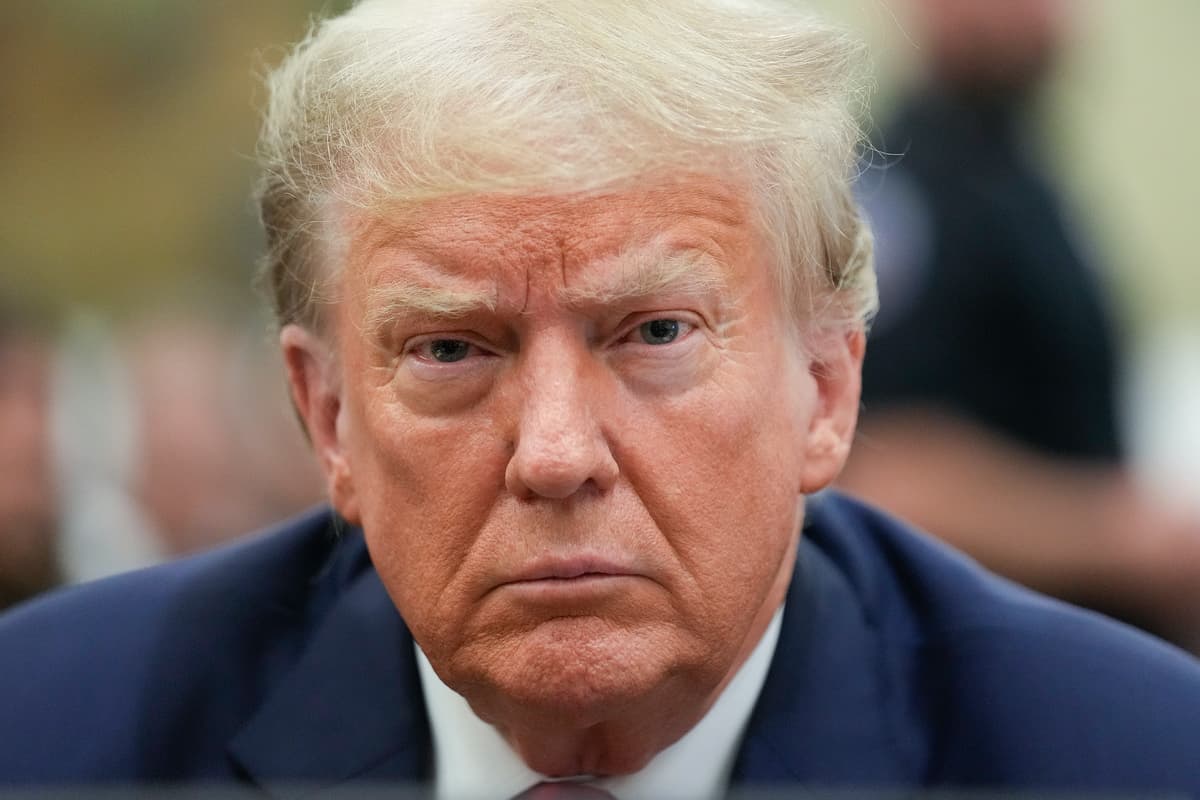Jack Smith, in a Major Development, Discloses That He Plans To Put Trump’s Character on Trial
A new filing previews a case that revolves around the former president’s modus operandi.

Special Counsel Jack Smith’s trial strategy, divulged in a filing to Judge Tanya Chutkan, appears singularly focused on convincing a jury that the roots of January 6, 2021 snake back deep into Mr. Trump’s past.
Mr. Smith promises to provide “extensive advance notice” of the evidence it plans to introduce at trial, where Mr. Trump will stand accused of criminal conspiracy. The special counsel aims to establish the former president’s “motive, intent, preparation, knowledge, absence of mistake, and common plan” in respect of overturning the result of the last presidential election.
The special counsel acknowledges that in order for a jury to convict Mr. Trump, it must be persuaded that he engaged in “knowingly false claims of election fraud.” The criminal law requires prosecutors to establish a mens rea, or a guilty mind, in order to convict.
Mr. Trump — and his allies — have advanced the position that because he believed the election was stolen, he cannot be found guilty of attempting to reverse its results. Now comes Mr. Smith to point to a “number of public statements,” in advance of the conspiracies he charges, “claiming that there would be fraud in the 2020 presidential election.”
The government’s contention is that Mr. Trump “sowed mistrust in the results of the presidential election and laid the foundation” for his alleged crimes. Mr. Smith, though, in an effort to paint a portrait of Mr. Trump as an inveterate election denier, offers what he terms a “historical record” that stretches far beyond the last election.
Mr. Smith writes that, as early as November 2012, Mr. Trump “issued a public tweet making baseless claims that voting machines had switched votes from then-candidate Romney to then-candidate Obama.”
The special counsel is aware that introducing evidence from the distant past is a dangerous maneuver. Federal law prohibits irrelevant evidence, meaning material that does not cut to culpability for the charged crimes. From the earliest days of the common law, courts have worried that extraneous evidence could prejudice a jury with material not probative to guilt or innocence.
That is why Mr. Smith writes to Judge Chutkan that Mr. Trump’s “false claims about the 2012 and 2016 elections are admissible because they demonstrate the defendant’s common plan of falsely blaming fraud for election results he does not like.”
The special counsel aims to use these past statements not to prove the charged crimes, but rather that those crimes were part of a modus operandi honed over years, approaching something akin to character.
Mr. Smith argues that Mr. Trump “repeatedly refused to commit to a peaceful transition of presidential power if he lost the election,” telegraphing a “plan to remain in power at any cost—even in the face of potential violence.”
The prosecutor tracks Mr. Trump’s “consistent refusal to commit to a peaceful transition of power” as a harbinger of his “plan to undermine the integrity of the presidential transition process when faced with the possibility of an election result that he would not like.”
Judge Chutkan heard many January 6 cases — and meted out stiff sentences on more than one occasion — and now it appears Mr. Smith is readying a refresher course, at Mr. Trump’s expense. He plans to show how Mr. Trump’s “embrace of Jan. 6 rioters is evidence of his intent during the charged conspiracies, because it shows that these individuals acted as he directed them to act.”
Crucial to Mr. Smith’s case is that Mr. Trump “repeatedly sidelined advisors and officials who told him or the public the truth about the election results, and who pushed back on his false claims.” Such a freezing out could bolster the government’s case that the former president knew the election was stolen, and persisted in contesting it — and worked to “stifle any dissent” — regardless.
More unusually, Mr. Smith announces his intention to use Mr. Trump’s support for those who rioted at the Capitol as evidence to show his intention to disrupt the vote and secure a second term. For the government, the former president’s “embrace of particularly violent and notorious rioters”— including the leader of the Proud Boys, Enrique Tarrio, convicted of seditious conspiracy — demonstrates his “motive and intent.”
By leaning so heavily on January 6, though Mr. Smith could open himself up to the question of why he did not charge Mr. Trump with insurrection, the count on which the 45th president was acquitted at impeachment. By introducing evidence that spans years, the special counsel risks being told to narrow his scope.

